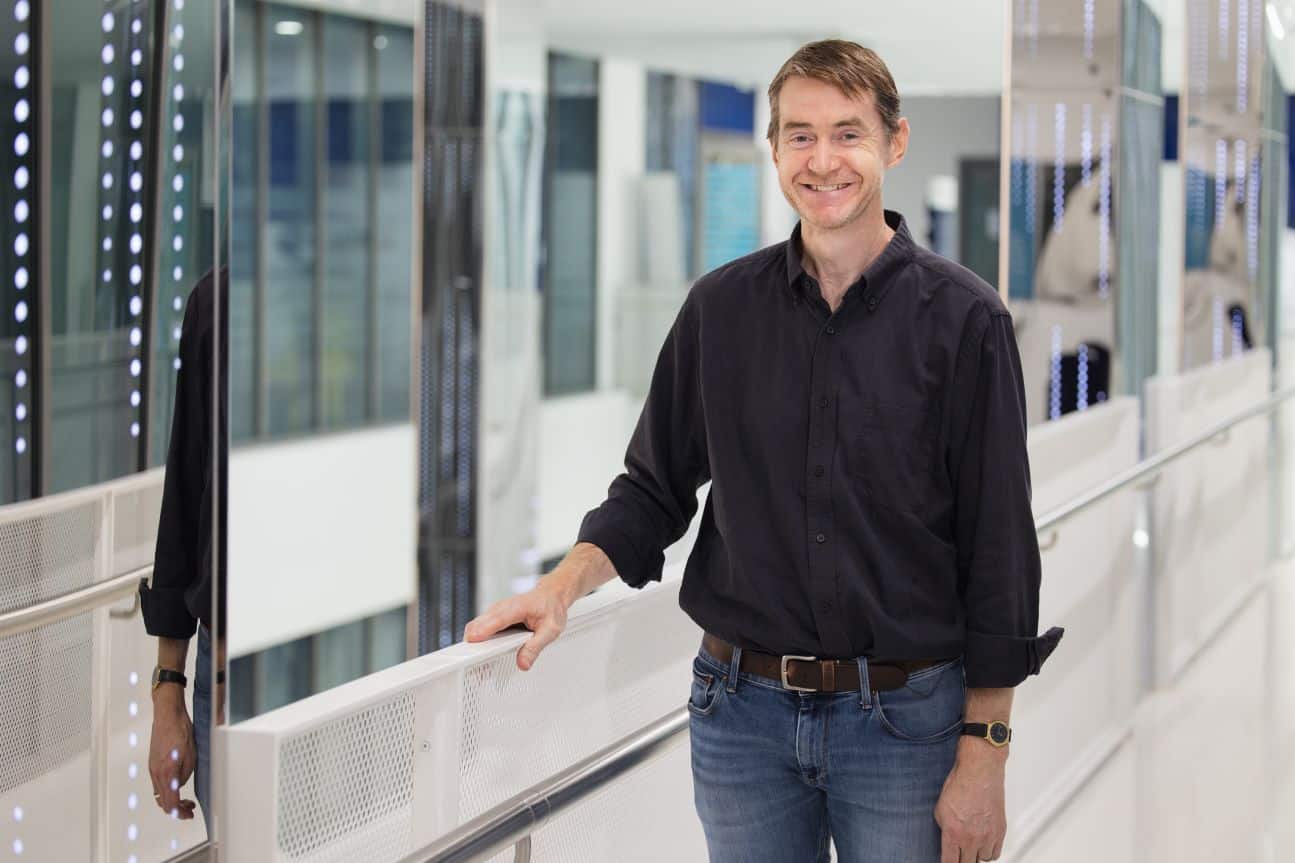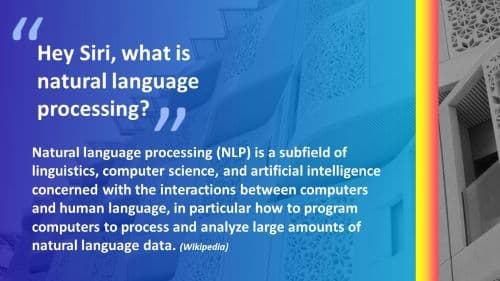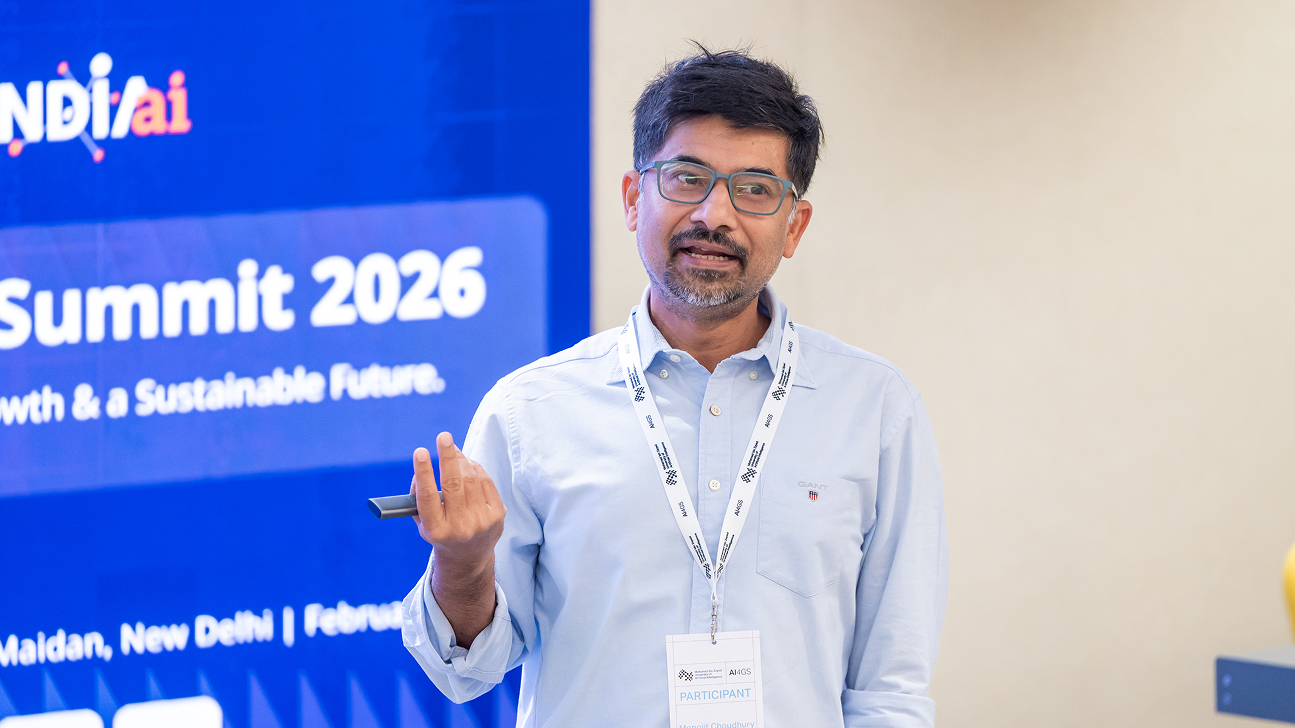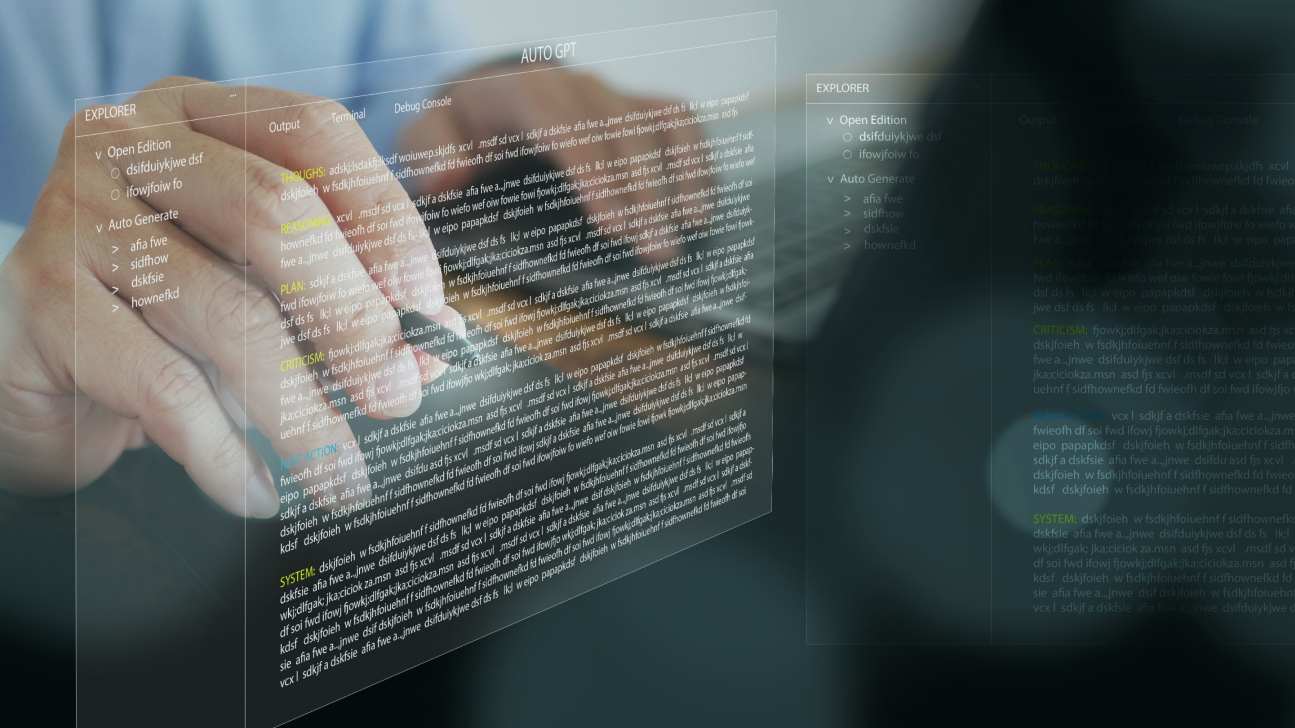NLP “dream team” on the agenda
Tuesday, March 08, 2022

It is hard not to talk to Siri or Alexa in our day-to-day lives, and that is thanks to natural language processing (NLP). NLP is everywhere nowadays and is an essential part of everyday smart applications and many artificial intelligence (AI) services.
MBZUAI has appointed Professor Timothy Baldwin as Associate Provost for Academic and Student Affairs, and the acting department chair of its new NLP Department. His first job is to bring together the NLP “dream team.” MBZUAI offers both master’s and Ph.D. programs in NLP, and in his dual role Baldwin hopes to both strengthen the curriculum and build a world-class faculty team from the ground up.
“MBZUAI is part of a very ambitious agenda, on the part of the government, to grow a local AI industry in a short period of time,” Baldwin said. “So, the idea of being able to come in and be part of the leadership team is not an opportunity that comes along every day.”
Prior to joining MBZUAI, Baldwin spent 17 years at the University of Melbourne, including roles as Melbourne laureate professor, director of the ARC Training Centre in Cognitive Computing for Medical Technologies (in partnership with IBM), associate dean research training in the Melbourne School of Engineering, and deputy head of the Department of Computing and Information Systems.
 “Baldwin brings a wealth of expertise in natural language processing for AI and healthcare – areas of importance for the region and for the university,” MBZUAI President, Professor Eric Xing, said. “His addition as an associate provost strengthens our academic leadership as well as enriching the learning experience of our students. I am delighted to welcome him to Abu Dhabi and MBZUAI. This is an exciting time at MBZUAI as we are still growing. Baldwin’s ideas, thought leadership and approach will help us reach new heights and this is something that we continue to strive for.”
“Baldwin brings a wealth of expertise in natural language processing for AI and healthcare – areas of importance for the region and for the university,” MBZUAI President, Professor Eric Xing, said. “His addition as an associate provost strengthens our academic leadership as well as enriching the learning experience of our students. I am delighted to welcome him to Abu Dhabi and MBZUAI. This is an exciting time at MBZUAI as we are still growing. Baldwin’s ideas, thought leadership and approach will help us reach new heights and this is something that we continue to strive for.”
Baldwin has previously held visiting positions at Cambridge University, the University of Washington, the University of Tokyo, Saarland University, NTT Communication Science Laboratories, and the National Institute of Informatics. His primary research focus is NLP including deep learning, algorithmic fairness, computational social science, and social media analytics.
Growing NLP department
Baldwin said he has “ambitious growth targets” for the NLP department which aims to “push the boundaries of what is possible with NLP”. At the core of the department’s work is a deep commitment to developing NLP datasets and methods to help solve critical social problems and achieve efficiency and productivity gains across business and government.
“A large part of my role will be recruiting the right mix of academics across all levels,” Baldwin continued. “There is so much of NLP in other areas of computer science so we are looking for not just pure NLP professors, but professors across a spectrum of different sub areas who can work with other departments within the university. Having people explicitly working at the intersection between text and images (computer vision) or dialogue systems for a more naturalistic interface for robots (machine learning and robotics), will be integral to our success at MBZUAI.”
“As part of my provost role, I’ll be working to enhance the profile of the university and the quality of the curriculum and teaching to make MBZUAI a world leader, the absolute gold standard in the AI space. And to get us to the point where – when students throughout the world are considering potential graduate destinations for studying AI – MBZUAI is right up there alongside the Stanfords and the CMUs and the Oxfords of the world.
I'm a big believer in the student being the heart and soul, and the engine room of the university...
MBZUAI Professor, Associate Provost for Academic and Student Affairs, and Acting Department Chair of the Natural Language Processing Department
the acceleration of AI – not just in research – but in terms of AI output and the AI economy in the UAE.”
A well-rounded AI education
NLP was largely an academic pursuit 10 to 15 years ago, but with several industrial breakthroughs in more recent times, language-based technology applications are booming. Chatbots in e-commerce or on banking websites, Google Translate to make sense of a webpage in a language you can’t read, and your phone or computer’s assistance – to name a few driven by NLP. Due to this, Baldwin says all students must be able to work across the traditional boundaries of NLP especially in things such as speech, vision, and information retrieval.
“It’s hard to imagine a lot of the tools that we’re using on a day-to-day basis without NLP,” Baldwin said. “In terms of a rounded AI education, I think it’s critical that students have some background in NLP, or at least familiarity with the methods and the issues.”
“I’m a big believer in the student being the heart and soul, and the engine room of the university. They are the most visible output of the university. That is why we must invest the most energy into their experience and learning.”
Baldwin completed a B.Sc. (CS/Math) and B.A. (Linguistics/Japanese) at the University of Melbourne in 1995, and an M.Eng. (CS) and Ph.D. (CS) at the Tokyo Institute of Technology in 1998 and 2001, respectively.
Prior to joining the University of Melbourne in 2004, he was a senior research engineer at the Center for the Study of Language and Information at Stanford University. Baldwin is the author of more than 400 peer-reviewed publications across diverse topics in NLP and AI.
The next era of machine translation
Turbo-charging speed reading or information organization with the help of machine translation and AI will assist many industries in years to come to make better, more informed decisions. Traditionally, machine translation has been a text to text task, however, Baldwin predicts cross modality machine translation will achieve many things in the near future.
“Something we’ve been doing a lot of work on at the University of Melbourne, and something I see a lot of potential in, is clinical decision support,” Baldwin said. “If you’re a clinician trying to work out what’s the best treatment plan for a particular patient and you’ve formed an initial diagnosis, but you want to make the best decision relative to the specifics of that patient, AI can assist in distilling the latest clinical trials and medical literature into something the clinician can digest faster. Machine learning can process the particulars of the patient, recent breakthroughs, and other parameters, and can provide options for primary treatment plans to consider.”
In Baldwin’s estimation, AI can “communicate results back to the person who’s asking the question in as naturalistic way as possible,” he continued. “So, by reducing hurdles in being able to manipulate and interpret data, so that you don’t have to have a data scientist there, you’ve basically got the conduit of AI to replace that. It is very much decision support rather than decision making on the part of AI.”
MBZUAI is doing cutting-edge research that drives next-generation technologies, and deploying NLP to help create a more equitable, sustainable, and happier world. Advancements in NLP will reshape how we all live and work together, enabling businesses and organizations to analyze and glean insights from textual data at scales that are vastly beyond human capacity.
Related
Balancing the future of AI: MBZUAI hosts AI for the Global South workshop
AI4GS brings together diverse voices from across continents to define the challenges that will guide inclusive AI.....
- representation ,
- equitable ,
- global south ,
- AI4GS ,
- event ,
- workshop ,
- languages ,
- inclusion ,
- accessibility ,
- llms ,
- large language models ,
K2: An open source model that delivers frontier capabilities
MBZUAI’s Institute of Foundation Models has released its latest version of K2 – a 70-billion-parameter, reasoning-centric foundation model.....
Read MoreTruth from uncertainty: using AI’s internal signals to spot hallucinations
Researchers from MBZUAI created 'uncertainty quantification heads' to help make hallucination identification more accurate and efficient.
Read More

